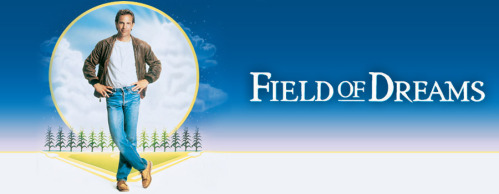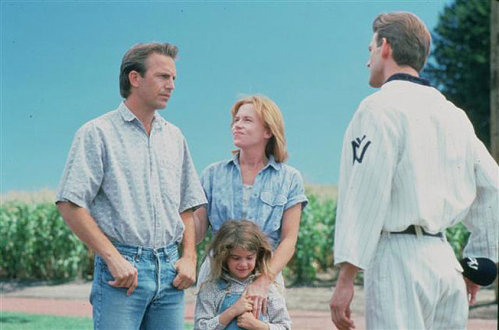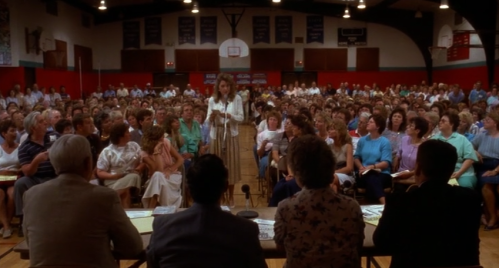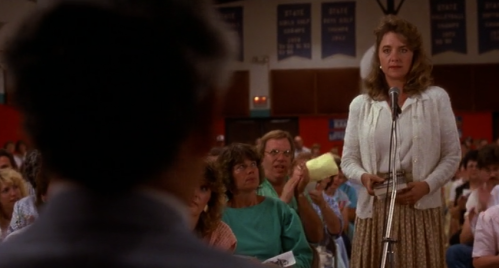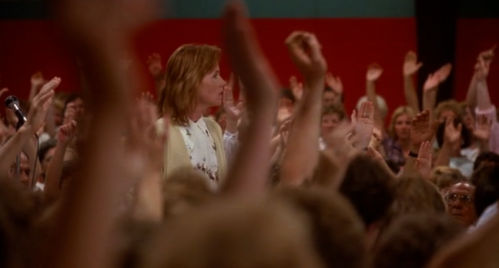The Art of Villainy
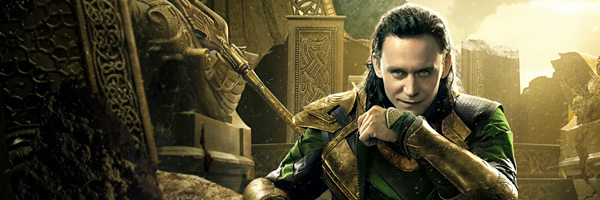
by Geoffrey Botkin (article source)
- - - - - -
Pop quiz. Read and then answer:
There have been riots in the streets of London after Britain has run out of petrol because of an oil crisis in the Middle East. Protesters have attacked public buildings. Several policemen have died. Consequently, the Government has deployed the Army to curb the protests. After two days the protests have stopped. But 25 protesters have been killed by the Army. You are the Prime Minister. Write the script for a speech to be broadcast to the nation in which you explain why employing the Army against violent protesters was the only option available to you and one which was both necessary and moral.
The above question was recently given to 12-year-old boys whose parents want them to be admitted to Eton, the elite British school for the governing class. So what is the passing answer to this question?
Well, it all depends on what kind of ethical system you want your national leaders to follow. What is necessary and moral? What moral standard are young Brits bringing with them into the college, and what will they take with them into the Prime Minister’s office? Exactly how is it these Eton professors want tomorrow’s Prime Ministers making life-and-death moral decisions?
Do the parents of these boys really care? Or is the road to power what matters most? Names of boys go on the Eaton waiting list at birth, and parents pay more than $50,000 per year to keep those who are accepted on target for places of privilege and raw power. At Eton, Eton boys are taught that they are born to lord it over others. They will rule, some day. They know it, and everyone else knows it. Eton boys graduate with a certain air of competence at doing exactly what they think needs to be done…with privileges others don’t have, and with an ethical system that will be consistently pragmatic and sentimentally British. But will it be moral? Or elegantly evil?
Maybe one of the perks of privilege is not having to worry about ethics. You simply do what you think needs to be done – for pragmatic reasons – and then you write a speech justifying it all. Eton boys are quite good at this. Out of Eton have arisen 19 headstrong Prime Ministers, and more than a dozen flamboyant villains, each of whom made a lot of money. Thanks to Hollywood, educated Brits have earned a reputation for being good at abusing privilege, and making villainy look “proper.” And thanks to Hollywood, this educated, elegant variety of villainy is now wildly popular and more accessible than ever.
“When Preparing for Villainy…One Must Sound Like a Proper Villain.” 1
What is a “proper villain?” In Britain, he is a high-class abuser of power, and his vocation can be learned as an art form. Different varieties of villainy have a learnable aesthetic. America is familiar with the lowest-class variety. Grand Theft Auto teaches millions of boys gutter villainy and disorganized crime. Violent feats of debauchery are glamorized. Petty criminals kill in vulgar ways that are different from the blood porn of Isis beheadings, which requires a more refined aesthetic. White collar villainy is yet more refined.
Villainy is a curious discipline and a cruel obsession. Because villains cannot lead from positions of moral integrity, trainee villains learn artifice and affectation by rote. Even the highbrow criminals have to learn to act the part and look the part. One new lesson of 2014: Just buy a Jag. “We all drive Jaguars,” intones British villain Mark Strong about his fellow British villains.
On Jaguar’s British Villains Dot Com website, new customers are invited to join the vocation of villainy by driving British Jaguars and acting like British villains. Stylish villainy of a British flavor is presented as High Art. That’s art with a capital “A” and high with a capital “H.” Aspiring villains of any criminal caste can visit the site and refine their style upwardly. They can learn how to dress like a villain, how to sound like a villain, how to corrupt like a villain, how to plan world domination as a villain, and how to plan one’s escape as a villain. A proper villain.
Eton boy Tom Hiddleston has had such a successful career as a movie villain that he too has been hired by Jaguar to articulate the most purposeful, elegant villainy. And to teach it. In one ad, Hiddleston takes the driver’s seat, listens to some patriotic Shakespeare, switches it off and turns to the camera. “They say Brits play the best villains,” he begins. And then Hiddleston proceeds with an authoritative lesson on the art of “great” villainy, which is chillingly proper. It looks…gentlemanly. If that strikes you as oxymoronic as “proper villain,” listen to the name of the Jaguar campaign: “It’s good to be bad.”
It Is Not Good To Be Bad
Moral heroism fell out of favor with popular culture two generations ago. In the movies, moral consistency and moral certainty is now a vice. Immoral consistency is a virtue. Not only are villains in control of themselves, they often drive the plot. Purposeful villains are far more interesting characters than the moralistic imbeciles who portray “heroes” in today’s cinema and television. Ever wonder why Hollywood casting directors seek out Brits to play iconic bad guys? Americans don’t have the comparative discipline or the education to carry a focused role. Educated British schoolboys have the foundational disciplines to speak with authority, precision, distinction and command. They clearly stand head and shoulders above undisciplined Americans. Ask the American female audience, "Who captures your attention?" It’s the bad guys who can consistently focus, who know exactly what to do, and how to do it without ambiguity, hesitancy, or cowardice. The British villain acts in a fully disciplined way. He knows what he wants. He prepares. He prepares for villainy. He is not afraid of planning to get what he wants. He is not ashamed to want dominion over all he sees. These new villains seem to be the closest thing to…informed manhood.
But redefining manhood into knavery is an act of villainy itself. It is not good to be bad. No man should twist manhood into something injurious. Real men should never confuse virtue with vice. It is never good to frown at the gutter thieves and excuse the cool, confident ones because they have learned to buy nice suits and fast cars. Around 500 BC, Aesop reputedly said, “we hang our petty thieves and elevate our great ones to high public office.” Today we train elite schoolboys to be bureaucrats in high public office. And we train them to define what is necessary and moral on their own terms. So how do they decide? But what is their vision of dominion? Is it the rule of law? Or is it to steal the law and replace authority with the razor-sharp personal style of the high-class villain?
In the US, we glorify villainy in cinema, and find it easy to emulate it. We vote for public officials who betray the rule of law for clever pragmatic agendas. Jaguar says gentlemen villains “have the character, intelligence and sheer determination to turn the world upside-down.” They have character, all right. And they are inverting the world. But it is not good character that puts lawlessness above the law. It is not good character that inspires impressionable men to live as recklessly as Jaguar’s devilish spokesman, who, with a flick of his finger, throws his car into growling overdrive on urban streets, racing faster and faster. The villain grins. The villain quotes Shakespeare. The London Symphony Orchestra swells. The car roars louder, and fine print appears in subtitle: ALWAYS OBEY SPEED LIMITS.
What? What is this? This is your quiet reminder that even the most brilliant, artistic villainy will always be restrained by the law and subject to the dominion of law. This is what is moral and necessary.



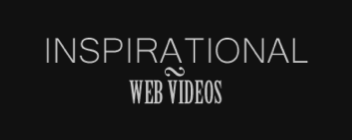

 Post a Comment
Post a Comment




